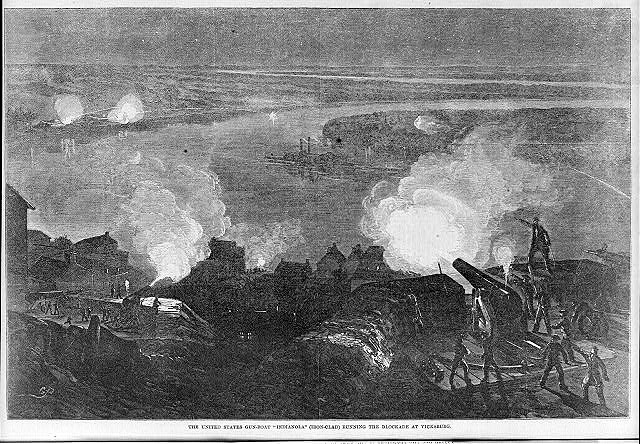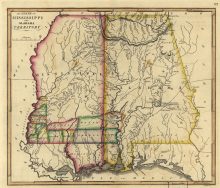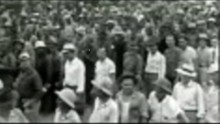Dr. Joseph Dill Alison, the author of this diary was born December 23, 1828, at Charleston, S. C., and died at Carlowville, June 3, 1905. He was the son of Hugh Lee and Mary Catherine (Beekman) Alison, South Carolinians who removed from Charleston to Carlowville, in 1833. The former was educated in Charleston and graduated at the school of medicine at that place. His grandparents were Jacob Hyleman and Margaret (Lockwood) Alison and Samuel and Anne Lee Beekman, the former a native of New York, a Lieutenant of the First South Carolina Line in the Revolutionary War and was a member of the Cincinnati Society at its founding in 1783.
Dr. Alison attended a boys school in Dallas County and received his college education at Spring Hill, in Mobile. He graduated from a medical school in Charleston, S. C., in 1850, then returned to Dallas County where he practiced medicine until the outbreak of the War Between the States and had the rank of Major in the Confederate Army. At the end of that war he resumed his practice. He was a Justice of the Peace between 1885 and 1895. He was a Democrat and an Episcopalian. On March 11, 1852, he married Henrietta Catherine Reynolds Townsend at her father’s home known as Panther Creek Plantation, in Lowndes County, Ala. They were the parents of twelve children.
Unlock all Alabama Pioneers stories
Alabama Pioneers members see thousands of stories, biographies and nostalgic items like this everyday.
Become an Alabama Pioneers Patron
WAR DIARY OF DR. JOSEPH DILL ALISON
OF CARLOWVILLE, ALABAMA
Part 2
On the night of the 14th of September, a party from Fort Pickens came to the Navy Yard, surprised our guard and burnt the Police Schooner, the Indak, and wounded a few of our men and lost two of theirs. No notice was taken of their invitation to return their visit until Oct. 8th , when Gen. Bragg was prepared to accept the invitation and sent about 1200 men under Gen. Anderson to partake of their hospitality. They left at midnight in barges towed by a tug boat. Landed on the Island two miles above Pickens and one mile from the tent store houses. Surprised the pickets, ran them into camp and before the alarm could be given, fairly set fire to the whole encampment. The enemy slaughter was great and hardly one of our men hurt. Then a regiment or so came out of Pickens and our men started for their boats. The ground being very irregular, our men got separated and the officers lost all control of them. The Pickens men, by a near route, got between them and the boats, and a desperate fight ensued. The enemy were at last forced to retreat, but kept up a running fight. It being still dark, our men in their excitement, mistook their own friends and fired upon them. It is probable that most of our loss resulted in this way. Although all of the party had a piece of white cloth tied on the arm, they could not be distinguished in the night, wounded and missing, is about 40, and 40 more wounded brought off. The loss of the enemy is not yet definitely known but it must be immense.
Oct. 9th —Today, flags of truce passed between the Navy Yard and Pickens. What transpired, I do not know.
Oct. 12th —Various reports as to the fight on Santa Rosa Island, and as near as I can get the truth from those engaged, our success was complete. Our men burnt all the tents and houses except the hospital and spiked all the guns on this side except one. The loss of the enemy must have exceeded 200.
Nov. 22nd —At ten o’clock, Pickens opened fire upon us. At five-thirty o’clock, firing on both sides ceased on account of a very heavy rain.
Nov. 23rd —All quiet last night. This morning hear many reports of how different guns and gunners behaved. Little damage done to our batteries, only one gun dismounted, and that through recoil. We lost seven men, two killed by shell and five smothered by the caving of a magazine. At eleven Pickens opened fire on us again.
Nov. 24th —No damage done to our batteries. Ft. McRae somewhat injured, but has been repaired. The Navy Yard very little injured. Warrington and Woolsey almost entirely burned up.
Jan. 1st 1862—Second bombardment commenced.
Feb. 23rd —Andrew Calhoun’s wife and Miss Sallie visited our camp and dined. They were the first lady visitors we have had. (They were from his home village of Carlowville, Ala.)
Feb. 24th —Today we received orders to pack up and report to Chattanooga as soon as possible.
March 2nd —Since last date, have been waiting for marching orders. Received them today.
3rd —Waited all day for the cars.
4th —Still at the depot this morning.
5th —Train came and we started at 10 A.M. The road being in very bad order, we could not run at night. Stopped at Greenville. (They got to Montgomery the next day and there Dr. Alison heard from the Quarter Master that his destination had been changed. He was to go to Corinth, Miss., by way of Mobile.)
Feb. 9th —At Montgomery I got permission to go home and then to meet the boat with the company next day at Elm Bluff. Reached Benton at 11 o’clock. Hired a horse, rode fifteen miles and got to Dr. Townsend’s at one o’clock, quite a surprise to my darling wife. (Dr. Townsend was his wife’s father.) Started for Carlowville, got home at dark, met the family and many friends. Took the boat late in the evening. “Off to war again’ (When he reached Corinth he was given a house and about 80 sick, with orders to fix up the place into a hospital and take charge.)
Feb. 19th —I go to work with a will but meet with but little encouragement. I can get nothing but a few cooking utensils and very little medicine. No bedding or hospital furniture, however, I am determined to make out the best I can.
Feb. 24th —No improvement in hospital arrangements. Sick keep pouring in. I can’t make the poor sick soldiers comfortable. Cold and no fireplace, and scanty covering which the sick bring with them.
Feb. 25th —An order has come to remove all the sick who can be removed to Oxford tonight.
April 3rd —Am ordered to join the battalion, as a fight is expected.
April 4th —In the saddle all day, but made but little progress.
April 5th —The battle line is formed by dark and the soldiers sleep on their arms. We can hear the enemy’s drums distinctly. We must fight tomorrow.
April 6th —About one o’clock we were marched to the right and then sent into the midst of battle. I there saw the dead and dying lying thick. I could not but see more Yankees than our own men. Farther I went, the thicker they lay. We have driven the enemy back. The Yankes fought well but could not stop the impetuous attack of our men. The Alabama Mounted Rifles dismounted and went with an Infantry Regiment. Drove the enemy back until under cover of their gun boats, which threw shells so thick we were compelled to fall back. Darkness, and so ended the fight of the 6th , the hardest fought battle ever fought on this continent. With night, my work commenced. Dr. Riggs and myself found a tentfull of wounded Yankee soldiers and we went to work to dress their wounds.
April 7th —I thought the fight was over and we had gained the greatest victory ever gained on this continent, but alas! the enemy ‘had been largely reinforced during the night, and came on us in strong force at 8 o’clock, when the conflict again opened. Our men were exhausted by hard marching and fighting, many regiments were scattered so as not to be got together again,— but still we charged them. We drove them back many times, but they returned with fresh troops to the attack. Overwhelmed by numbers, we had to fall back. Reached Corinth by night. All the wounded had been carried there.
April 9th —I have been through my first battle and have had enough of it to last a lifetime.
May 30th —Corinth was evacuated last night. Fatigue and exposure have brought me low, but I moved on with the Medical Corps.
June 6th —Reached Verona today. Too sick to travel.
June 8th —Am somewhat better and start again, riding in the wagon.
June 17th —Reached Columbus and camped two miles from the town on the Luxpilata.
June 30th —Went before a Medical Board in session in Columbus and returned to camp in the evening as a Surgeon
Oct. 1st —Continue the dull routine until today when we again moved camp and all artillery was put together in a Battalion of which I am the Surgeon. I also have two other companies to attend, giving me full employment.
Dec. 26th —I have been nearly a month in the far famed city of Vicksburg. Here I met Gen. S. D. Lee (his first cousin) and spent a few days with him. Several thousand prisoners have been exchanged here. For three days past, there had been some skirmishing on the Yazoo about ten miles from here. Today, the guns sounded quite near. Persons have come into town, having been run out of their homes by the Yankees and their houses burnt. The river is full of boats, some say as many as 80 are ashore. There is one continuous line of smoke, the troops are all in trenches and batteries all manned. I am almost alone in camp tonight, having only the sick and a camp guard. We expect hot work tomorrow.
Dec. 27th —Sharp fighting today, but no attack on our works. The enemy have landed a large force on the Yazoo and are attempting to get in our rear, but have met with no success. Our skirmishers are falling back to the rifle pits.
Dec. 28th —The Yankees have made a desperate attack on us right early this morning and kept it up all day, but have not succeeded in carrying any of our breastworks. The battery with which I am have stationary guns on the line of fortification running from the river east, two miles from the present point of attack, but we were favored this morning with their notice in the shape of a good shelling, of which we took no notice. No damage was done, but many shells came uncomfortably near. The battery which annoyed us was fully two miles distant.
29th —Occasional firing all night. The enemy make a desperate effort to carry our rifle pits. Charged one point thirteen times, but were repulsed every time.
Dec. 30th —Only light skirmishing today.
31st The enemy seem to have gotten enough and are leaving.
Jan. 2nd 1863—Enemy have left and gone up the river. They find Vicksburg a hard nut to crack.
Jan. 4th —Walked over the battle field but found no trophies, as the country has been pretty well scoured. Saw the graves of the dead, in one place counted 100, and hear most of their dead are buried further back. One man said he saw 500 graves, and no doubt many of them contain more than one body. Our loss was 127 killed, missing and wounded, while that of the enemy must have been near 2000. We took upwards of 400 prisoners. All is quiet now as if there had never been a fight.
Jan. 23rd —Saw smoke of the boats returning, and today a few gun boats and about twenty transports came in sight across the bend and tied to the opposite shore. Landed troops opposite the city, but in sight, but too far to be reached.
Jan. 24th —Transports continue coming in, loaded with troops. They make quite a show at their anchorage, look like a village.
25th —We can now see two large encampments, one near the famous canal and one higher up the river. It is supposed they have eighty thousand men there and will attempt to reopen the canal.
30th —Our Camp moved to the lower batteries, four miles from town, we can see nothing of the movements of the enemy, but hear that their transports continue coming and going. The enemy come sometime in range of our guns, but a few shells send them back to camp. They have burned most of the houses in De Soto, a small village across from Vicksburg, and destroyed the stock on all of the farms near them.
Feb 10th —Moved again, nearer town, only one mile from the Railroad station. The gun boat, Queen of the West, ran down the river a few mornings ago. Our upper batteries were not working well, still she was hit a few times, but what damage was done is not known. She lay all day at the lower opening of the canal, but out of range. She is now down the river, probably gone to Port Hudson.
Feb. 24th —The Gunboat Indianola passed down last night. It was dark and cloudy, we had to fire at the sound of her paddles, so she probably was not hurt.
Feb. 25th —We today received news that the Queen of the West was captured on Red River and coming up in full chase of the Indianola. Heavy firing was heard down below Warrenton, presumed to be a fight between the gunboats.
Feb. 26—The Indianola was captured last night, particulars not known. This morning I was aroused by heavy firing up the river. It is thought it is a coal barge we were shooting at but I hear this evening that our lower batteries have been firing at a gunboat which passed us in the dark without her chimneys on.
(Several blank pages followed, seeming to tell the tale of steady beating down of Southern hopes and Southern forces.)
(Continued)
ALABAMA FOOTPRINTS – Volume I – IV: Four Volumes in One
The first four Alabama Footprints books have been combined into one book,
From the time of the discovery of America restless, resolute, brave, and adventurous men and women crossed oceans and the wilderness in pursuit of their destiny. Many traveled to what would become the State of Alabama. They followed the Native American trails and their entrance into this area eventually pushed out the Native Americans. Over the years, many of their stories have been lost and/or forgotten. This book (four-books-in-one) reveals the stories published in volumes I-IV of the Alabama Footprints series.





Since I live in Vicksburg it very interesting to read an eye witness account of days and months leading up to the siege and ultimate surrender. Keep the stories coming !!!